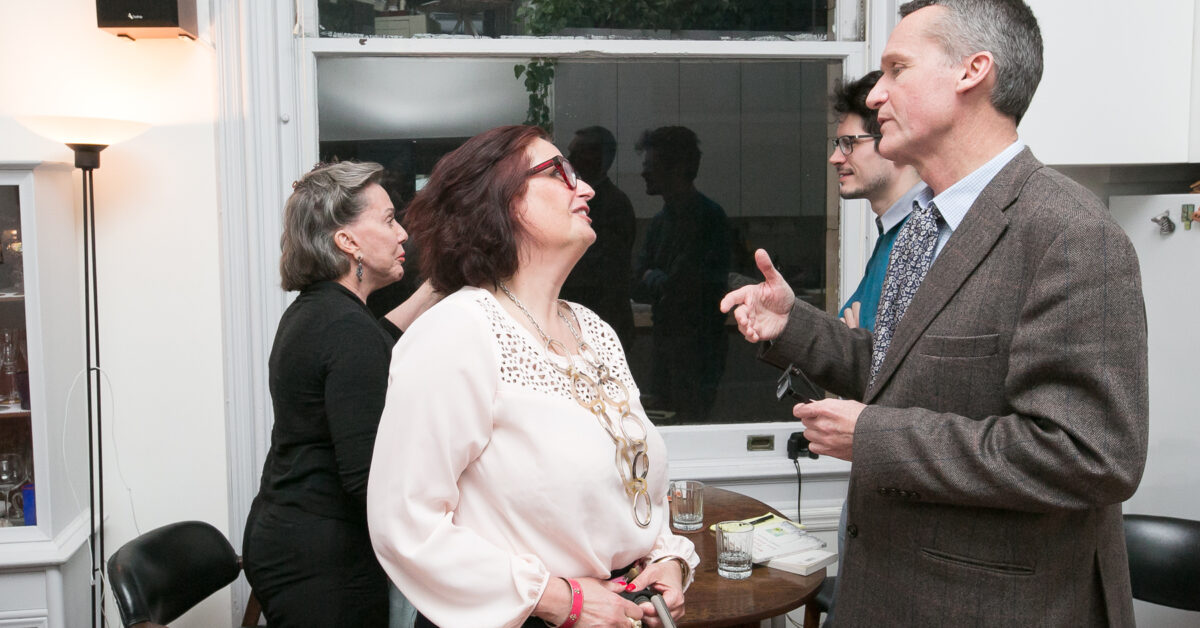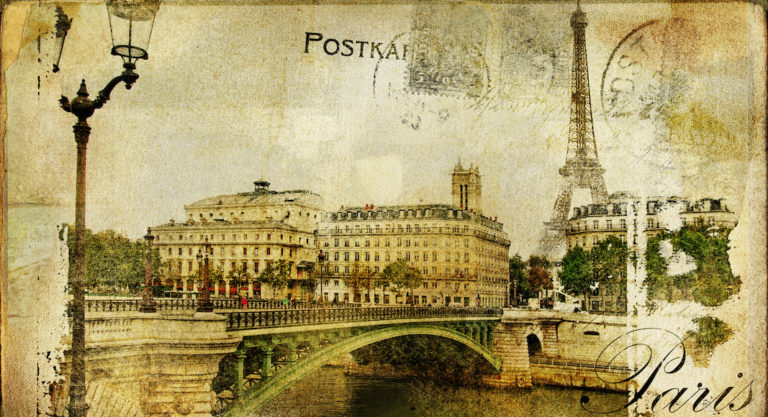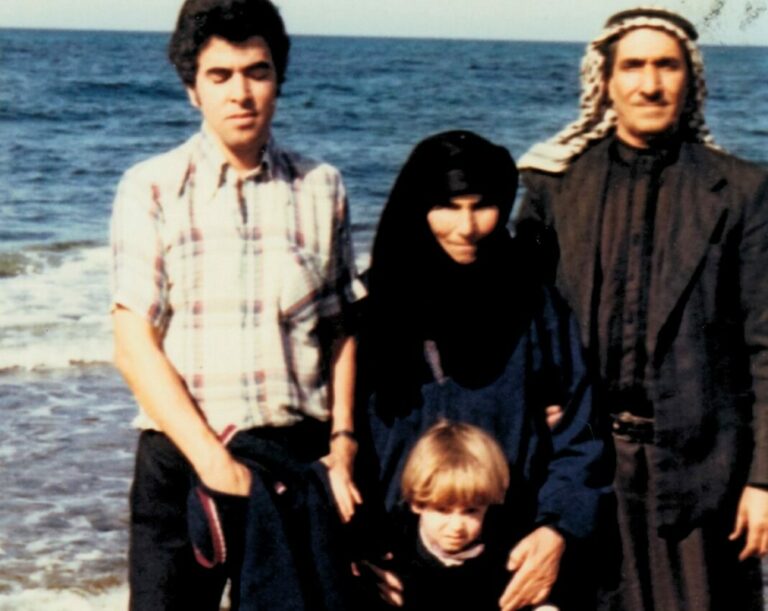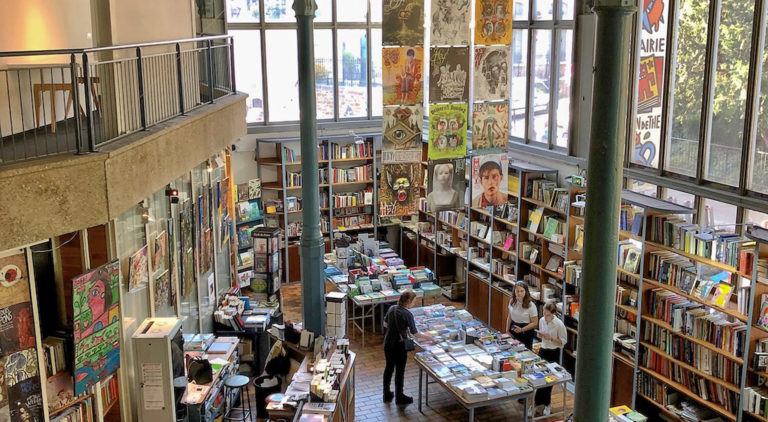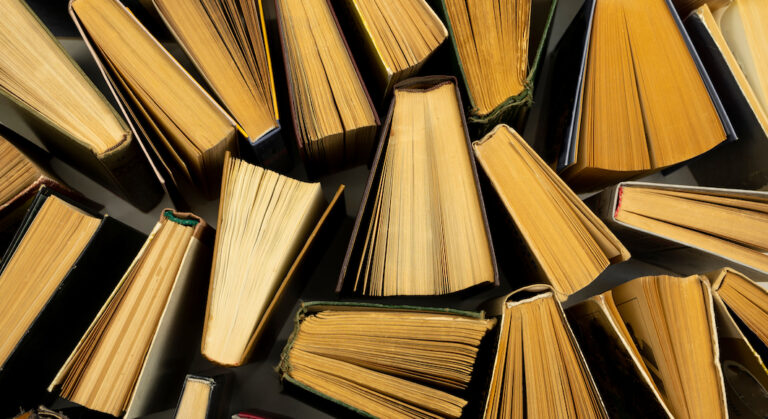French Morning English Edition had the good fortune to sit down with M. Makine at Literary Quest, an annual event co-hosted by the residents of Westbeth Center for the Arts and the PEN World Voices Festival.
Our hostess, visual artist Nancy Goldring provided tea and Walkers’ shortbread in her sunny, book-filled apartment as Andreï Makine shared his views on literature, the European Migrant crisis, and why he rarely travels to the US.
FMEE: Congratulations on your recent election to l’Académie française. How do you feel this new title will affect your writing?
AM: Not at all. The election is not a phone call out of the blue, it’s a gradual process. 16 years ago, after I received a medal, I was told to prepare myself for this eventuality. Election is a great responsibility. l’Académie française is an institution that’s existed for 400 years to preserve the power of the French language. No other country has that.
FMEE: As a Russian-born French writer, what will be your unique contribution?
AM: I defend the French Language with my writing! By writing in French, and representing the French Language when I travel to Beijing, St. Petersburg, Chicago, I am already performing my duty to l’Académie.
FMEE: You are in New York as part of the PEN World Voices Festival. Do you often travel to the US?
AM: Not often. It’s the biggest democracy in the world, and yet this democracy makes me feel like a criminal. American customs officials not only require fingerprints from both hands and a full face photograph, they ask so many questions. “Where were you born? Russia? But you live in France? And you’re a writer? Why do you write in French?” In Europe, you present your ticket, your ID, and that’s it. Chekhov was also a Russian writer. When he traveled from Moscow to Germany in 1904, he had no trouble.
To be treated like a suspect for entering a country to which you’ve been invited as a guest is completely surreal.
FMEE: As an immigrant yourself, what are your thoughts on the current state of immigration in France?
A: It’s a different situation now than what it was for me. Today there is an ideology of “immigration” that is harmful to immigrants. They are seen as objects, without respect for their human dignity. Without that, immigrants fall into an ideological patchwork, where they are grouped together, denied individual agency and must be handled by the state. In truth, these immigrants are necessary to our economy. They provide labor. Marx stated that Capitalism needs a reserve of workers. We have that reserve, but they are not being permitted to contribute.
“Immigration has become “Immigrationism”. It is not humane, but it appears so.”
FMEE: What are you working on now?
AM: For the last two years, I have been reconstructing through interviews and research, the life of Jean-Claude Servan-Schreiber. He was a hero of World War II. His cousin was a friend of JFK. He fought in the French resistance for six years. He fought the Nazis, he was in a Concentration Camp. He even fought in an American Sherman Tank! There’s a picture of him sitting in a tank holding his binoculars. At 98 years old, his life spans the 21st Century. He saw both wars, the foundation of the UN, the EU, technological advances. Each part of his life is the page of a chapter of a book. Like me, Servan-Schreiber is an example of Francophony (the non-native French-speaking world). His Grandparents were German Jews from Eastern Prussia who came to Paris. I asked him why his family moved to Paris instead of London, where they would have been safe from persecution. His grandmother loved Molière!
FMEE: You have previously spoken about the struggle of overcoming your conditioning to convey different characters’ perspectives of the Soviet Union. Is that also the case in this book, when writing about the role of Russia in World War II?
AM: No. An author becomes a good writer when he no longer dictates his own opinions and prejudices to the characters.
FMEE: I also wanted to ask about another quotation of yours: “Beyond the hours of composition, however, I believe a writer owes it to himself to be frivolous.”
AM: That wasn’t me, that was Proust! And he’s right. A writer must be serious in his writing and sincere in real life. It is often the opposite. Writers are frivolous in their writing, but take themselves too seriously, showing pretensions before journalists.
Frivolous writing follows trends, adheres to the style of the hour. Nancy Goldring (our hostess) has previously welcomed writers from Serbia, Chechnya, the Middle East. Why? Because the crises in Serbia and in Chechnya, and the Arab Spring are so often spoken of in the news. Current events are popular in literature, but that is journalism.
When Tolstoy wrote War and Peace, 40 years had passed since the events in the novel. He had hindsight to provide a vanishing point of perspective on the social and historical significance of the events he wrote about.
Journalism, done well, is a noble profession, but it’s not the vision I have of literature.
Note: Makine’s interview was conducted in English and French. Translations were provided by Nicholas Elliott.

